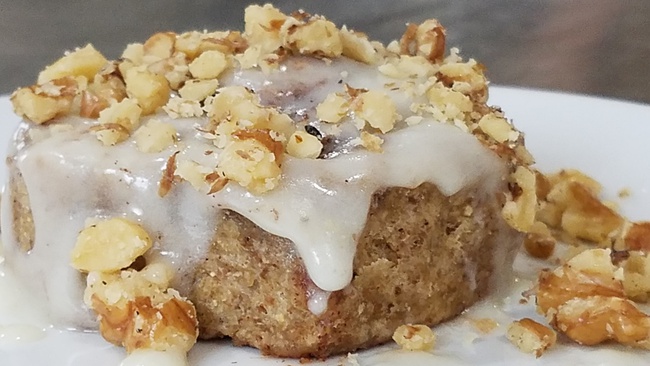Zym•yr•gy is a sustainable, zero-waste bakery concept that, at full production, will be nested in The Yard, next to Still Austin and St. Elmo Brewery.
At full production, I can reuse 30,000 gallons of stillage - 160,000 cups of spent grain and 1 swimming pool of wastewater per month. I can also reuse the wine bottles to serve water or store oil for the brick and mortar patrons.
First and foremost, my team makes this business model viable. We have the domain expertise to make this a profitable and sustainable business. More importantly, we are tenacious! Additionally, there are already interested silent partners. The Texas craft beverage industry has increased ~1,000% across all sectors, wine, beer, and spirit in 10 years. As the growth of new establishments slows, existing producers are ramping up supply, which means the waste stream will increase. The environmental need to address this issue is strong. The market is brand new with only one other company out of LA creating granola bars out of brewery spent grain. The time to enter is now.
With a franchise model, this business could explode. The supply is excessive! There are 5,234 craft breweries (Brewer's Association, 2017) and 1,292 craft distilleries in the U.S. (
Statica.com, 2017), selling over 25 billions of barrels of alcohol a year. Targeting millennials (83.1 M in US) and alcohol drinkers (56% of the US population drinking monthly), we have a huge market opportunity, (
uscensus.gov, 2018 and
niaaa.nih.gov, 2018).The specialty grocery sector continues to grow and is experiencing market disruption with the Amazon acquisition of Whole Foods. This offers amazing opportunity for Zym•yr•gy. In Texas alone, there are 61 specialty grocery stores, 57 H-E-B Plus', and 119 Spec's (store websites).
During the start up phase of the business I can sell the first $50K from my residential kitchen under the Cottage Food Law passed in 2011. Thus, owner equity of $10K and the Reverse Pitch Prize money could fully fund us until moving into our commercial bakery. The goal would be to eventually rent an industrial space for baking. Based on our initial financial models operating at 100%, we will need $70K in equity and $40K in debt to launch the commercial business. This will include $50K in equity from a silent partner. We will take out a business loan from a bank for the $40K. Our business is attractive because our Equity to Asset ratio under these terms would be 68% and operating at full production would yield returns above variable costs of $13 M and returns above total costs of $7 M annually.
I am acting CEO of Zym•yr•gy. I have 5 years experience with Texas craft beverage niche, including a 1.5 years with the GO TEXAN program. I have a B.S. in Agribusiness from Texas A&M and am working on my M.S. in Sustainability at Texas State. This business has been a dream of mine for 10 years and I joined the sustainability degree track knowing this was going to be my thesis project. I left my role as a sales operations manager in tech, running a team attaining 100% of a $6M annual goal to pursue this dream. My CMO has been a manager at HEB for 17 years. She is currently store director for seasonal and specificity departments at the Bee Caves store. This experience will help us with wholesale distribution to retail grocers as well as with merchandising. Together her and I have 24 years of sales experience. While living in San Luis Obispo, Ca my husband, Jamie Wiley was a cinnamon roll baker. He is hands down the best baker I have ever met! He has been providing feedback for the recipes and helps use refine until we get the best product. He is also an electrician and will help with any building modifications needed to move into the industrial space.
Based on our initial financials, we would bring three full-time salaried positions, two full-time baker positions at $13 an hour (starting) and three part-time $9 an hour positions to Austin. Our operations do not take tons of skill so positions will be filled by young adults graduating out of the foster system, paroled felons, veterans and those with disabilities. We would help local beverage producer by reusing their waste in a more environmentally friendly way than the industry standard. Unsold baked good will be donated to food ministries and shelters in the area.
30,000 gallons of stillage produces creates 1 swimming pool of waste waster and 160,000 cups of grain. With the water two possibilities exist beyond just filtering and reusing to clean the bakery daily. We could contract with city to use the water as fertilizer on park and riparian spaces or sell to urban agriculture farms. Some will be used to grow the chives we will use on our pizzas. We will use all compostable or reusable utensils and eatery and will compost on site. Using the EPA WARM model, by diverting this waste we would reduce carbon dioxide emissions by 920 metric tons annually, create net positive tradeoffs. Our goal is to have 0 landfill waste and fell confident we can divert 95% initially. Sanitary waste from the bathroom will need to be thrown away and was accounted for in the model. Setting up the commercial bakery right next to Still Austin will minimize fossil fuels needed. I want to work with the property owner to implement solar and rain catchments over time to further reduce the properties foot print. The location is in one of the primary focus areas of the Williamson watershed. Rain catchments will help with water quality in that area.
